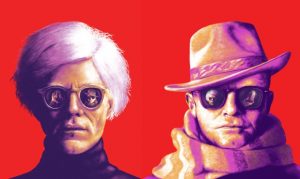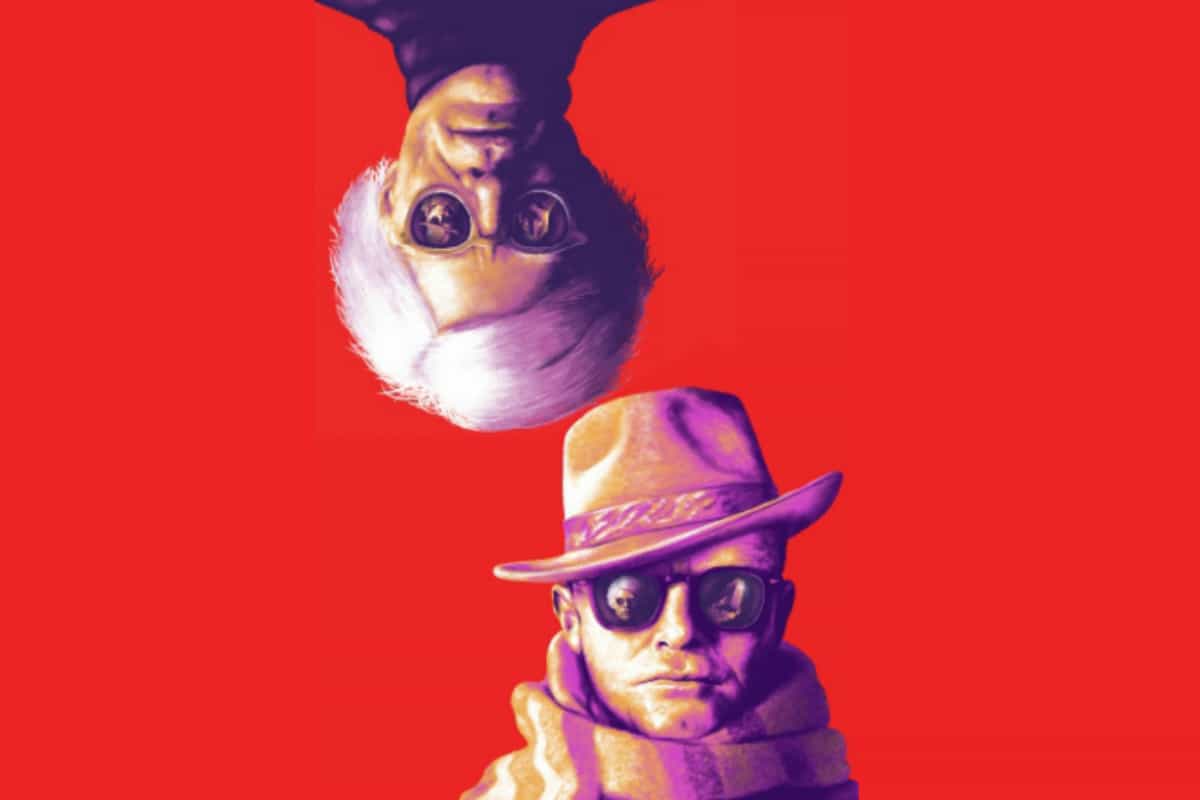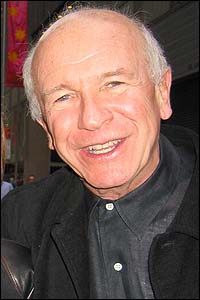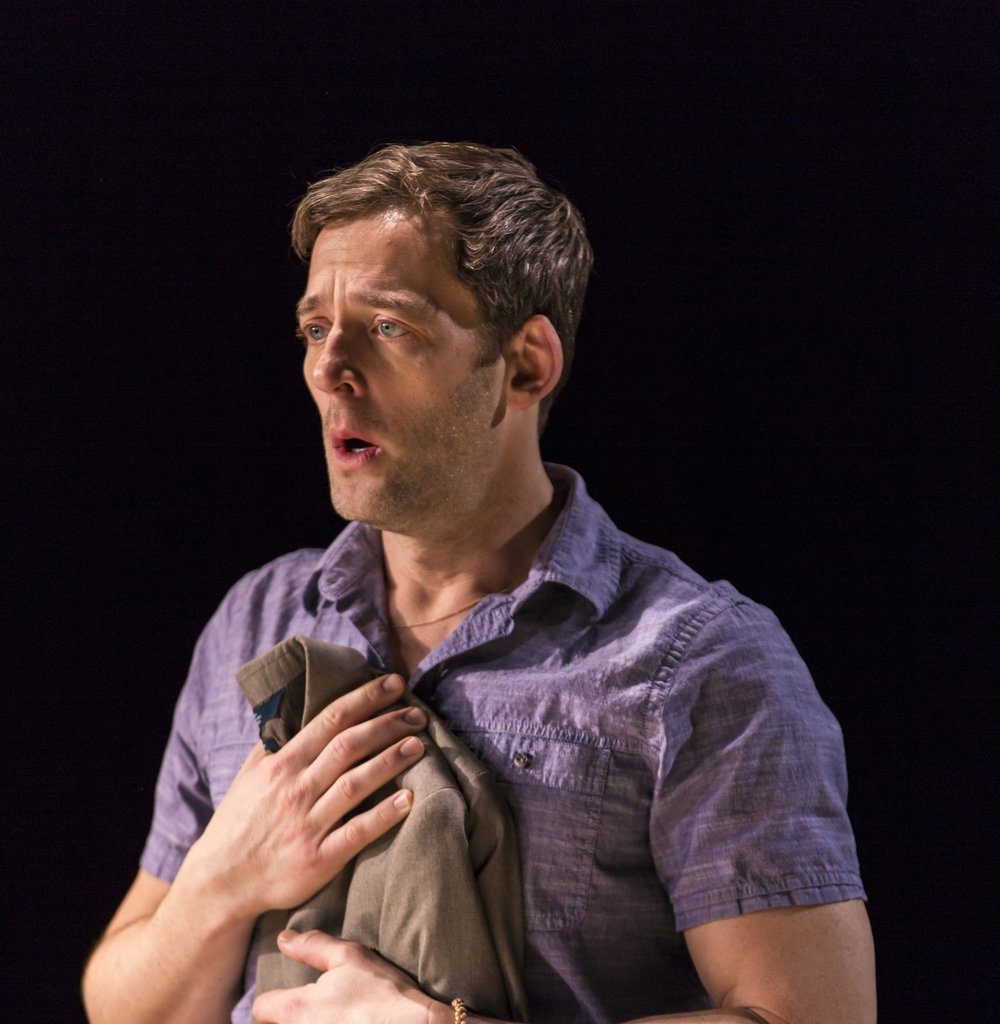“Truman is magic” says an awestruck Andy Warhol a couple of times in the course of Warhol/Capote, a ninety-minute play having its world premiere in Cambridge Mass. this fall. Stephen Spinella (Warhol) and Dan Butler (Capote) have captured each man’s unique vocal styles and body language, and their personae come across the stage so well that one longs to leap onstage and join in the conversation.
 The play is based on eighty hours of conversations recorded on cassette tapes and transcribed. When the conversations lagged or didn’t provide enough context, playwright-adaptor Rob Roth has seamlessly woven in lines from published works by Warhol and Capote. Known for his sculpture, installations, and performance, this is Roth’s first play, and obviously a labor of love. The conversations are enhanced by a smart and uncluttered set consisting of two chairs and stylized sculptures of unspooled cassette tapes. Warhol was deeply attached to his tape recorder and called it his “wife.”
The play is based on eighty hours of conversations recorded on cassette tapes and transcribed. When the conversations lagged or didn’t provide enough context, playwright-adaptor Rob Roth has seamlessly woven in lines from published works by Warhol and Capote. Known for his sculpture, installations, and performance, this is Roth’s first play, and obviously a labor of love. The conversations are enhanced by a smart and uncluttered set consisting of two chairs and stylized sculptures of unspooled cassette tapes. Warhol was deeply attached to his tape recorder and called it his “wife.”
Warhol said that he talked too much, that he should have given Capote more time on the tapes. Capote said that his favorite thing to do in the world was talk, and he was quite the raconteur. Much ground is covered: there’s random first-name celebrity dishing (C.Z.! Liza! Jackie! Tennessee! Bogie!); bantering about all the fun to be had at Studio 54; and Warhol’s fear that maybe one day he wouldn’t be recognized at the door and wouldn’t be allowed to enter. In an emotional scene, Capote recounts a recent drying-out experience in Hazelden addiction center. It’s not too harrowing, though. Warhol reports that he tried to call Capote during his stay but “never got through”; one wonders how hard he tried.
Warhol interrupts Capote every few moments to take Polaroids from various angles (“three quarters, that’s good, wow”). The two men talk about literature, including Capote’s unique and pioneering blending of fact and fiction; art, with Warhol wondering if he should have stuck with painting Campbell’s soup cans; and the like. And they reminisce about their early days. Though not dwelt upon in the play, it is well documented that when he was young, Warhol had a crush on Capote, and his first solo exhibit, at the Hugo Gallery in New York in 1952, was Fifteen Drawings Based on the Writings of Truman Capote. He came close to stalking Capote with incessant phone calls and letters, but made a good impression on Capote’s mother. He didn’t realize, he said, that she was an alcoholic; he just thought she was really nice.
As documented in the original tapes, Warhol and Capote had indeed hoped to collaborate on a play. Not just one play, in fact, but eight, and all running at the same time. WarholCapote is the distillation and consummation of their unrealized plan. One would love to know what they would have said about it.
WarholCapote is at the American Repertory Theater in Cambridge, Mass., Sept. 10–Oct. 13.






